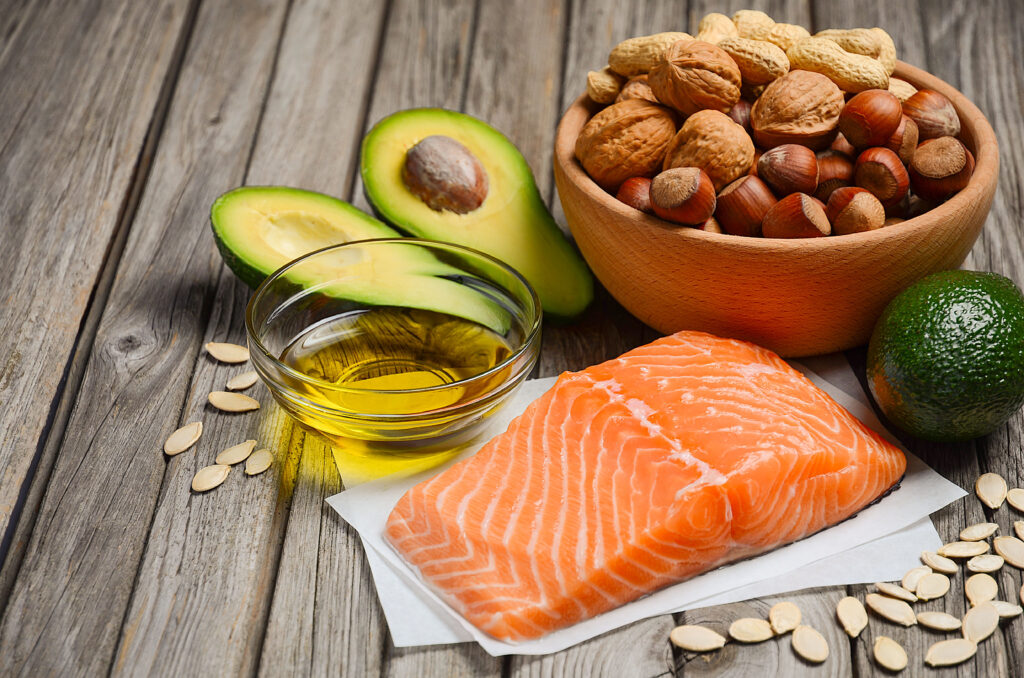
Low-fat diet trends, previously thought to help with weight loss and heart risk reduction, led a generation of people to think of fat as a villain that they needed to ban from their diets. But restrictive diets have taught us that when we don’t get enough of one nutrient, we usually replace it with too much of another. And restricting any nutrient — whether it’s fat or carbs — makes for a diet that’s too limited to meet the body’s needs. The truth is, there are no “bad” nutrients. You need all of them. That includes fat. So let’s make friends with it again.
All fats perform essential functions:
- Fats help meet your energy needs.
- They allow you to absorb fat-soluble vitamins (A, D, K, E).
- They support cell function and hormone production.
- They insulate the body and protect its organs.
- They help you feel full after meals.
Saturated fats (found mainly in animal products) offer these benefits, too, but they’ve also been linked with high levels of LDL cholesterol, a heart risk factor. Studies find that replacing saturated fats with starches and sugars has no benefits. But replacing these fats with other types of fat appears to improve heart risks, as well as other areas of health. For example:
- Choosing monounsaturated fats (found in avocados, olive oil, and some nuts and seeds) appears to reduce cholesterol and triglycerides.
- Choosing omega-3 fats (found in fatty fish and some nuts and seeds) has been linked to improvements in triglycerides, as well as arthritis, cognitive health, and inflammation.
Four ways to make friends with fat
- Set a goal: Aim to get 20-35% of your daily calories from fats. To support a positive relationship with food, think of this as a goal, rather than a limit.
- Swap: Trade out saturated fats for other fats when you can. Top your toast with hummus or mashed avocado instead of butter. Cook with olive or walnut oil instead of coconut oil. Opt for salmon instead of steak.
- Savor: Garnish your meals with a sprinkle of nuts, seeds, olives, or avocado. Adding small amounts of fat can help you savor meals, absorb key nutrients, meet your energy needs and feel full longer.
- Snack: Pair your snacks with healthy fats. Spread peanut butter on apples or crackers. Dip veggies in hummus. Make your own trail mix with nuts, seeds and dried fruits.
A diet that makes room for a variety of fats, balanced with starches, fiber and protein, means you’re more likely to meet all of your nutritional needs — and to enjoy meals more, too. Sounds pretty good right?


